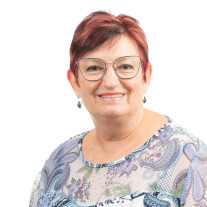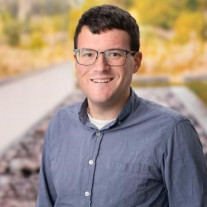Advanced Manufacturing and Materials Engineering Working Group
The Advanced Manufacturing and Materials Engineering Working Group (AMME WG) of the Generation IV Forum (GIF) was established in October 2023, continuing the initiatives started by the GIF AMME-Task Force in 2018.
The AMME WG serves as a platform to advocate for the application of advanced manufacturing and materials engineering technologies, aiming to expedite the deployment of advanced reactor systems. A key objective of the AMME WG is to enhance international cooperation in certifying advanced manufacturing and materials engineering processes for Generation IV reactor applications.
Goals and scope of work of the AMME WG
The deployment of future Generation IV reactors will necessitate the successful use of both traditional nuclear structural materials and enhanced advanced materials, as well as the adoption of advanced manufacturing techniques that can lower construction costs and timeframes.
However, the qualification of new materials or manufacturing processes can be an extensive and complex journey, with the lengthy lead times posing a significant obstacle to the industrial-scale adoption of new or optimized materials and manufacturing methods.
Consequently, the challenges in qualifying advanced materials and manufacturing processes are postponing the introduction of Generation IV reactors and the development of material and manufacturing solutions that would benefit the six Generation IV Reactor Systems.
Following the Spring 2023 meeting of the Generation IV International Forum Experts Group, the Advanced Manufacturing and Materials Engineering Working Group was formed to facilitate international, collaborative research and development efforts aimed at accelerating the integration of advanced materials and manufacturing processes, thereby reducing the time needed to deploying Generation IV reactors.
Topics covered by the AMME WG
The AMME-WG established Task Groups (TG) in four topic areas:
Task Group 1 (TG1). Survey on advanced manufacturing application in industry
TG 1 develops, maintains, and distributes a survey to gauge current sentiment in the Gen IV reactor community on the utility of advanced manufacturing.
Task Group 2 (TG2). Sharing, coordination, and demonstration of work on the qualification of advanced manufacturing
TG 2 provides a forum for sharing, coordination, and demonstration of work on the qualification of advanced manufacturing and materials engineering techniques and develops and maintains a platform for exchanging information on these topics.
Task Group 3 (TG3). Modeling and simulation approaches for the qualification of advanced manufacturing
TG 3 develops activities and projects focused on the innovative use of modelling and simulation (M&S) to accelerate the qualification of advanced manufacturing techniques, with a particular focus on benchmarking/demonstration problems to assess the readiness of the community to apply advanced M&S to qualify new manufacturing processes.
Task Group 4 (TG4). Experimental approaches for the qualification of advanced manufacturing
TG 4 supports the development of benchmark studies to manufacture and characterize the performance of reactor relevant components and explore accelerated testing methodologies aiming to support industry’s adoption of advanced manufacturing.
History and Membership of the AMME WG
The AMME-WG carries on the initiatives of the Generation IV Forum Advanced Manufacturing and Materials Engineering Task Force (AMME-TF), established in 2018 to explore how collaborative R&D can advance manufacturing and materials to expedite the deployment of Gen IV and similar advanced reactors. A survey conducted by the Task Force revealed significant interest among research institutions and nuclear companies in GIF countries for active collaboration on Advanced Materials and Manufacturing solutions at a High Technology Readiness Level (TRL). As a result, the Task Force's main focus shifted to organizing a series of workshops to provide a plateform for such cooperation to be set up (for more detailed information, refer to the "AMME TF" chapter at the end of this page).
Currently AMME WG includes nine member countries including Australia, Canada, China, France, Japan, Korea Switzerland, UK, USA, European Commission and International Atomic Energy Agency (IAEA) as an observer.
The AMME WG is led by three co-chairs and an supported by one GIF Technical Secretary.

Dr
Isabella J. VAN ROOYEN
Dr. Isabella Van Rooyen is a senior technical advisor for Advanced Material Systems specifically integrating advanced and manufacturing techniques and material development to accelerate technology readiness through advanced characterization techniques and performance testing. She has been PI /co-PI for over 15 government funded projects as a distinguished staff scientist tenured at INL, national technical director for the DOE-NE AMM program (2019-2021), material development technical area lead for the DOE-NE-AMMT program. She published 50+ journal articles, 30+ conference proceeding papers, and 100+ technical/scientific reports. Four patents awarded (2020, 2021, 2021 2022), and six patents pending for ceramic, metallic and gradient components, and corrosion resistant heat management components fuel through AM processes.

Dr
Mark MESSNER
Mark’s research areas include mesostructural and engineering-scale material modeling, structural and material design and optimization, development of simulation methods, and engineering design method development. He has a particular interest in the design and safe operation of high temperature nuclear reactors, concentrating solar power facilities, and thermal energy storage systems.
Dr
Lyndon EDWARDS
Member of GIF Policy Group, Expert Group, VHTR System Steering Committee and VHTR Materials Project Management Board (2017-2023), Founding Chair of Advanced Manufacturing and Materials Engineering Task Force (2018-2023).
Principal, Lyndon Edwards Engineering, Adjunct Professor, University of New South Wales, Visiting Professor, Bangor University. Formerly National Director, Australian GIF Research (2016-2022)
Prof Edwards has a long-standing international reputation in nuclear and materials engineering. With over 300 publications his research has focussed on the structural integrity of nuclear power plant, advanced aircraft structures, and defence platforms. He is internationally recognized as an expert on Residual Stress and one of the leading proponents of engineering stress measurement using neutron diffraction and was awarded the 2017 Iain Finnie Award for “Seminal contributions to both residual stress measurement, especially neutron diffraction, and the application of those measurements for the prediction and mitigation of residual stress effects in the field of structural integrity.”

Dr
Elena POPLAVSKAIA
Elena Poplavskaia is a Nuclear Scientist in the division of the Nuclear Science and Education and Data Bank at the OECD/NEA. She also provides Technical Secretariat for the Generation IV International Forum (GIF) supporting the SCWR Steering Committee, SCWR Project Management Boards on Thermal-hydraulics and Safety, Materials and Chemistry, SCWR provisional Project Management Board on System Integration and Analysis, the VHTR Fuel and Fuel Cycle Project Management Board and the Advanced Manufacturing and Materials Engineering Working Group.
Prior joining the NEA in 2013 she was the head of a Research Centre laboratory, where she led the activities on system analysis of nuclear energy systems including advanced fast reactors and closed fuel cycle technologies, innovative institutional approaches to nuclear energy deployment and long-term aspects of achieving sustainability in the cycle. She was also involved in co-operation with the IAEA INPRO project. She holds a PhD in Engineering Science.
Key AMME WG Deliverables
Since its official establishment in October 2023, the AMME Working Group members have delivered the following presentations at international workshops:
ECC-SMART Workshop on structural materials for GEN-IV SMR Concepts, 27-29 November 2024, Madrid, Spain, I. Van Rooyen, PNNL “Overview of the GIF-Advanced Manufacturing and Materials Engineering (AMME) working group.
WNE 2023, 30 November 2023, Paris, France, GIF SIAP session on Advanced Manufacturing and Materials Engineering, I. Van Rooyen, PNNL “Advanced Manufacturing and Materials Engineering Working Group (AMME-WG)”
INNUMAT Workshop on Qualification, 16-17 November 2023, Madrid Spain, Karl-Fredrik Nilsson, JRC,” Advanced Manufacturing and Materials Engineering Working Group (AMME-WG)”
Key AMME WG/TF Events
- Joint Workshop with CAMiNA at GIF Industry Forum/G4SR4- in October 3-6, 2022, Canada
- AMME Task Force Virtual Workshop on qualification of Advanced manufacturing in June 2022.
- AMME Task Force Virtual Workshop on Modelling and Simulation was held in November 2021 facilitated by GIF/NEA.
- AMME Task Force’s first Advanced Manufacturing Workshop was held at the OECD NEA, Paris, France in conjunction with a R&D Infrastructure Task Force (RDTF) meeting on 18-20 February, 2020.
Relevant Reference Material related to AMME WG Activities
Messner, Mark, Barua, Bipul, Huning, Alex, Arndt, Stephen, Massey, Caleb, Taller, Stephen, Dehoff, Ryan, Russell, Michael, Scime, Luke, Snow, Zackary, Ziabari, Amir, Halsey, William, Cooper, Stephanie, Orlyanchik, Vladimir, Sprayberry, Michael, Knapp, Gerry, Stump, Benjamin, Paquit, Vincent, Butcher, Thomas, McMurtrey, Michael, Patterson, Tate, Meher, Subhashish, and van Rooyen, Isabella. ASME Code Qualification Plan for LPBF 316 SS. United States: N. p., 2023. Web. doi:10.2172/1997134.
Li, Meimei, Andersson, David, Dehoff, Ryan, Jokisaari, Andrea, van Rooyen, Isabella, and Cairns-Gallimore, Dirk. Advanced Materials and Manufacturing Technologies (AMMT) 2022 Roadmap. United States: N. p., 2022. Web.
Accelerating the adoption of advanced manufacturing technologies for Gen IV nuclear reactors through international collaboration, I. J. van Rooyen, L. Ivan, M. Messner, L. Edwards, E. Abonneau, Y. Kamiji, S. Lowe, K.-F. Nilsson, S. Okajima, M. Pouchon, A. Storer, S. Teysseyre, K. Toyota, L. Zhang, J. -Y. Park, S. H. Kang, S.-G. Park, D. Costa, T. Funahashi, and C. Morley, Proc. G4SR-4 Toronto, Canada, Oct 3-6, 2022
Events relevant to the AMME WG activities
TBD
Appendix - The AMME Task Force
Initially, the Task Force formulated a hypothesis for testing via a survey: "the development of advanced reactor systems to provide clean energy around the world can benefit from international collaborations in the development of advanced manufacturing technologies and techniques."
Subsequent survey results revealed significant interest among research institutions and nuclear companies within GIF countries in actively collaborating to support Advanced Materials and Manufacturing solutions to achieve a High Technology Readiness Level (TRL).
Surveys offer valuable insights into the perspectives and activities of different segments of the nuclear supply chain concerning advanced manufacturing. However, the Task Force recognized the need for these communities to convene and communicate to form a consensus on the most effective and advantageous use of advanced manufacturing. As a result, organizing a series of workshops became the Task Force's primary focus.
The Task Force's inaugural Advanced Manufacturing Workshop took place at the Nuclear Energy Agency in Paris, alongside an R&D Infrastructure Task Force (RDTF) meeting from February 18 to 20, 2020. The workshop aimed to pinpoint collaborative opportunities that could shorten the deployment time of advanced manufacturing for advanced reactors. It featured a diverse group of participants from the nuclear industry, including reactor vendors, supply chain firms, regulators, national laboratories, and R&D providers.
In November 2021, a virtual workshop on Modelling and Simulation took place, facilitated by GIF/NEA due to COVID-19 travel restrictions. Attendees included reactor vendors, regulators, national laboratories, and R&D providers from the nuclear industry. The workshop featured four plenary talks on the role of Modelling and Simulation in qualification, four talks from Designers and Vendors, and concluded with a round table discussion. This was followed by brainstorming sessions where participants explored Modelling and Simulation opportunities to expedite the qualification of advanced manufacturing processes.
Facing challenges in defining clear directions, the Task Force conducted a virtual workshop in June 2022, concentrating on specific actions needed to hasten the qualification of materials and components. This preceded an in-person workshop scheduled for October 2022 at The GIF Industrial Forum.
The final workshop by the AMME-TF occurred in person on October 3rd, 2022, coinciding with the 4th International Conference on Generation IV and Small Reactors (G4SR-4) and the GIF Industry Forum 2022. This event was a collaborative effort between the GIF AMME-TF and the Canadian Advanced Manufacturing in Nuclear Alliance (CAMiNA).
The workshop pinpointed the following key opportunities for global collaboration on advanced materials and manufacturing methods for Generation IV reactors:
1. Disseminate, gather, and publish results from an annual survey of reactor and component vendors to identify critical manufacturing issues and track their evolution over time.
2. Determine and broadly disseminate the types of components and materials, typical loading conditions, and corresponding design limit states that are representative of a wide array of potential advanced manufactured Gen IV components.
3. Perform round robin benchmark studies for expedited qualification methods to provide evidence of their effectiveness to codes and standards organizations and regulators, in comparison to traditional, slower qualification methods.
4. Establish a forum for sharing, coordinating, and standardizing efforts on advanced manufactured components among international codes and standards bodies.
After five years of effort, the Task Force's principal accomplishment has been to identify and engage with a community that shares the Task Force's vision and is capable of collaborative work to advance the primary goal of the Task Force: to facilitate the use of advanced manufacturing to shorten the deployment time of advanced high-temperature reactors. Ongoing interactions with this community offer the main opportunities for future endeavors.
Additionally, the following achievements have been recognized:
1. The development of community engagement tools has enhanced both GIF's and the community's comprehension of related activities in various business and regulatory environments globally.
2. The community has come to understand that the challenges of integrating advanced manufacturing into the nuclear supply chain are shared universally, and that GIF is the pivotal organization capable of establishing an international framework for information exchange to facilitate the adoption of advanced manufacturing for high-temperature reactors.
3. It is acknowledged that the community holds diverse expertise across different sectors (such as reactor developers, supply chain providers, researchers, and regulators), which together have a considerable potential to expedite the deployment of Generation IV reactors.
4. There has been a rise in awareness within the broader community about the existing opportunities and challenges concerning the adoption of advanced manufacturing for high-temperature reactors.